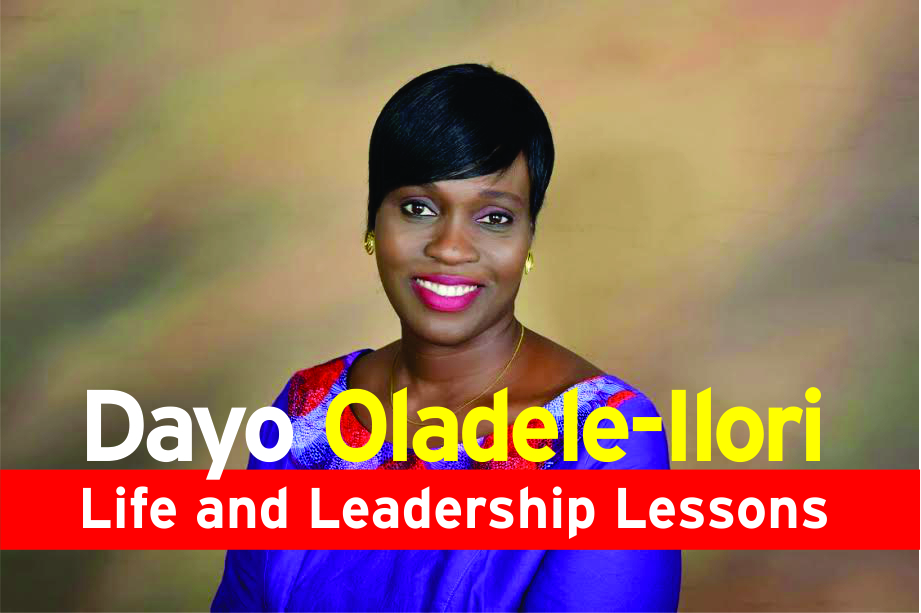“Hanhan, always use your PTR,” He chastised his sister. I was lying on the sofa, punching away on my phone.
“What is PTR?” she queried. The long trademark hiss of irritation and impatience filled the room. “So you don’t know PTR; what exactly do you know?” She ignored his comment and moved closer to me.
“Mummy, what is PTR?” It was a voice seeking a saviour and a bailout from the castigation of another.
She leaned towards me as I ransacked my brain to decipher the acronym with words that may fit the situation. But lo and behold, I was clueless.
Advertisement
“Well, I honestly don’t k now what PTR means. Why don’t you ask your brother? Maybe if he tells us what each letter represents, then I will be able to explain to you.”
“What!!! Mummmmmy, you are meant to know everything, how come you don’t know the meaning of PTR?”
One of my first life and leadership lessons for the year 2018 is that as leaders, there are so many things we know but are not fully aware of, and there are some many things we are aware of with a shallow level of knowledge. The strength of a leader is not in knowing or having the monopoly of wisdom but the ability to use the vantage position to learn, engage the strength of others, harness the resources around them to achieve profitable results.
Advertisement
“PTR: Pause-Think-Respond”, not entirely new, yet in an ordered sequential version, presents a refresher opportunity to take it systematically and in a process-driven way that rewrites a better scorecard.Pause-Think- Respond stems largely from our expertise at self awareness and self-control. It is the exclusive preserve of individuals who are emotionally intelligent. It also defines our level of maturity. Have I failed many times on this one?
Yes, basically because we have to consciously whip our personality traits to shape. But a continuous strive to be better has yielded less error points. Achieving the ability to Pause-Think- Respond is usually a war between two opposite extreme that offers no midway or balance. It is an art entrenched in situational leadership. Some of the most admired world leaders irrespective of their religious beliefs, political wing or tribal tilt are mostly esteemed because of their ability to gracefully practice P-T-R, a leadership skill that sets apart. Pause, then Play – While the play is on, be ready to press the pause button for a rewind, irrespective of who interrupted the free flow.
Many times when we do not pause, we exhibit egocentricity, deficient listening skills and an inability to empathize with others. Pause offers the opportunity to re-process and re-assess the situation patiently and objectively without been judgmental. The pause button is the listen button. It also helps us manage our defensive outlook and saves us from committing errors which we may not be redeemable or easy to amend. The pause button slows you down, takes us off the panic-mode, gives you a chance to relax, dissociate emotions away from real issues and helps you manage the number of outburst you may be prone to.
It is often difficult for people to press the pause button when they have a false sense of entitlement to control other people’s life. Some other emotions that influence the pause and play sequence are fear and lack of self-esteem. The pause button above all, puts in your hands, the remote control of self, and tempers how you eventually manage a situation.
Advertisement
Think, before Talk – Thinking it through is part of the new skills introduced in answering questions from reading and comprehension at primary school level. Thinking it through gives you a bigger picture that shows the end-to-end of an event. Its gives a broader overview and improves the quality of our speech, body language, draws an excellent summary and an engaging delivery.This does not take the shine off our ability to deliver impromptu speeches. It simply means thinking off your feet, while talking. It means you don’t just open your mouth to say the next buzz word because its sounds nice, vogue or fanciful. You process it as you say it, knowing to what end you speak. When you think it through patiently and weigh the implication of every word written or oral, many times you will choose the honourable path of silence or manipulate the content to reflect respect for self and others.
When we stick out our tongue too fast, we become a dog on several laps, panting before the end of the race.Our inability to rationalize our thoughts before we talk mostly stems from two emotions; impatience and anger. Others are our over-estimation of personal competence, placing it as superior to others. Sometimes it shows a poor self esteem where you push too much for acceptance. In board room politics, winners are usually those who take time to listen to others before launching their arsenal. Many launch their weapons at the simple openers and are left with no defense line when the buildup becomes tough. But for those who press the pause button to listen as well as think, the quality of their talk and contribution becomes part of the blue print.
Like a friend will say, never write an email when angry! And if physical, take a brief walk……..Respond not React: To Respond not React it’s a choice that is mindful of accountability and responsibility. It is an option that places a premium on the long term net worth of relationships. To respond, seeks solution while to react looks out for the opportunity to retaliate, revenge, hurt others or completely burn bridges. Our ability to respond instead of reacting can save a situation. Response addresses situation while reaction is an outburst against persons involved. Respond is objective while reaction is emotional.
If my car is bashed by a reckless driver, reaction will be screams, shouts or a slap but respond, which is usually solution oriented will demand for insurance cover and other documentsIn précis, play without pause, talk without a thought and eccentric reactions, are all detrimental to our self image and are pointers to immaturity. Pause-Think- Respond may appear a little slow; but I have also found out that the sense of urgency by which will treat issues at times are mere pressure that reduces the potentials of an excellent result. Always remember P-T-R at work or during leisure. Always apply P-T-R in business communication or during family conversation.
Advertisement
P-T-R is an excellent parenting skill that assures a positive influence over your children.I wish you a brilliant 2018 where dreams will leave the realm of obscurity, delivering beautiful realities in bright successes. Remember, when you chase the sun, you will catch the clouds, when you long for the moonlight, stories are heralded. Never seek perfection, simply stay genuine.
Advertisement
Add a comment






